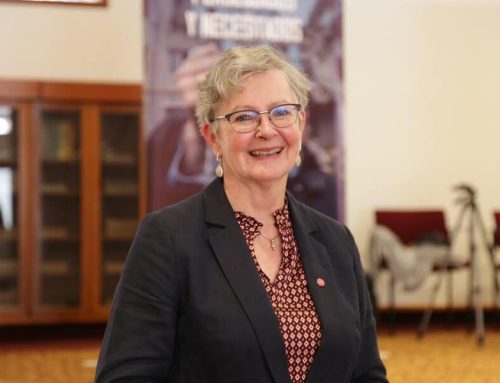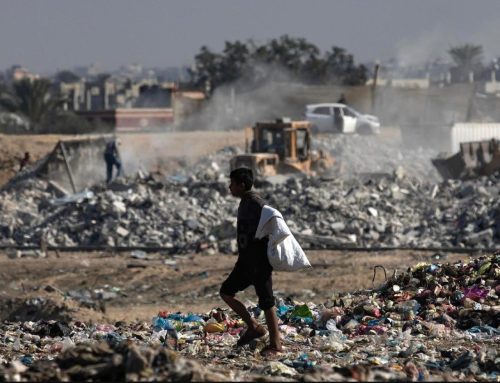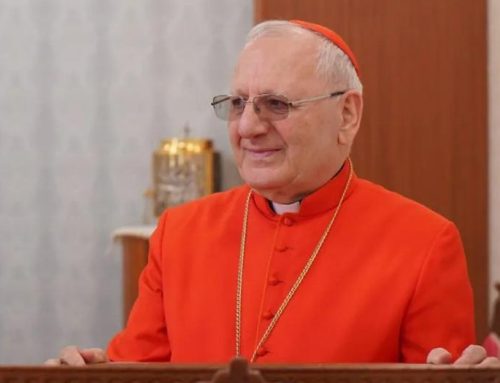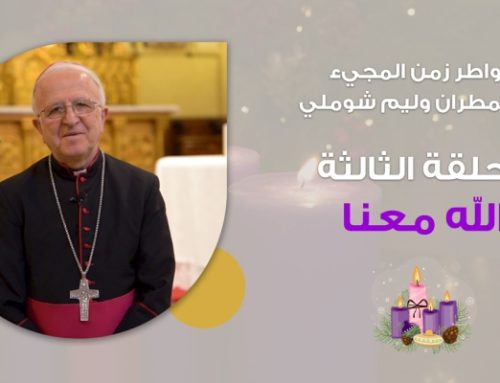
Around 60 Palestinians, internationals and representatives of the Catholic, Orthodox and Lutheran churches gathered on an olive tree-covered hilltop in the Cremisan Valley to pray for a halt to Israel's separation wall, which is set to annex the entire lush green area north of Beit Jala.
The weekly mass, which has been held since 2011, is the last action by the largely Christian community before Israel's Supreme Court issues a final ruling on Jan. 29 regarding the route of the wall.
Rev. Ibrahim Shomali, a Catholic priest who led the mass, thanked the crowd for its support over the years and said it was now up to the Israeli court to decide on the "future of our presence in the Holy Land."
Issa Kassissieh, Palestine's ambassador to the Vatican, which owns the land threatened with confiscation, told Ma'an that the seizure was unacceptable.
"The pope is coming as a peace pilgrimage to the Holy Land to build bridges and here we are seeing that a wall is being erected."
"This is a way of exodus. This is a way of pushing people out and there is no legitimate grounds for this confiscation by the Israelis, so we hope that the power of logic will prevail and not the logic of power."
Israel is constructing some of the last segments of its wall on lands west of Bethlehem, including the Cremisan monastery area, and al-Walaja village.
In 2006, Israel issued a military order to build the separation wall around Beit Jala and Har Gilo.
After a seven-year legal battle, 58 local landowners, and nuns from the Salesian convent who joined their legal action, lost an appeal against the route of the separation wall in April 2013.
The ruling last year proposed that the convent, and adjacent school, remain on the Palestinian side of the wall, but the nuns would lose access to 75 percent of their land and the school would be situated in a military zone surrounded by the separation wall.
The Cremisan monastery and winery would be on the Israeli side on the wall, splitting the religious community, and residents would no longer be able to participate in the annual religious event of the Holy Spirit Procession, which sees local Christians walk from Cremisan to the Annunciation church in Beit Jala.
the mass. (MaanImages/Charlie Hoyle)
Little hope for Beit Jala residents
After a lengthy legal battle, residents have little faith that justice will prevail through Israeli courts.
"People do not trust the Israeli courts. They just have hope in God to change the mentality of Israel's army and political leaders," Rev. Shomali told Ma'an.
Grace Abu Mohor, a teacher in Beit Jala who is set to lose 20 dunams of land and hundreds of olive trees, says Israel is seeking to annex the land in order to expand nearby settlements.
"Our hope is just in God. I don't think we have any hope with the Israelis. We look for peace but they don't know what the word peace means."
Abu Mohor says the seizure of family land which dates back generations will force Christians out of Beit Jala.
"I think this is what they want, but we are staying here until God takes our life."
Antwan Saca, a Beit Jala resident, said that Israeli policies have created huge limitations for the Christian community and will restrict worshipers from accessing their holy sites.
"The church, the seminary and the winery are the very last open green spaces that this community has, and they will be taken away from them," he told Ma'an.
Anica Heinlein, an advocacy officer for the Society of St. Yves, which represents the nuns, says that if they lose the upcoming appeal there is nothing else that can be done legally through Israel's justice system.

The case presented by the landowners and Salesian religious community argues that the wall is a means to annex Palestinian land to expand the surrounding settlements of Gilo and Har Gilo.
The appeal also stresses that the wall will infringe on the right to freedom of religion by separating the Christian community from the monastery and will threaten the right to education by forcing children to attend school in a military zone.
The area also serves as a recreational space for the residents of Beit Jala, Bethlehem and Beit Sahour, with families picnicking and hiking in the lush green valley.
Farmers harvest olives from the steep agricultural plateaus and will lose access to their land once the wall is built.
In the last hearing, high-ranking Israeli security experts from the Council for Peace and Security gave their opinion that the now planned route is neither necessary nor logical for serving Israeli security needs, St Yves said, and they proposed an alternative route next to Gilo.
Despite this testimony, and the appeal from landowners and the religious community, the state attorney from the Israeli Ministry of Defense said that the wall was necessary for the security of the Israeli state and would not create a permanent border.
It is uncertain when construction of the wall would begin following the Israeli Supreme Court's ruling, but Rev. Shomali says that taking the land away from local Palestinians will devastate the community.
"If they take our land there will be no future. No houses or cultural sites, or the monasteries that we have, or the agricultural land that we used to work on."
"There will be no chance for our community to stay here on this land."








